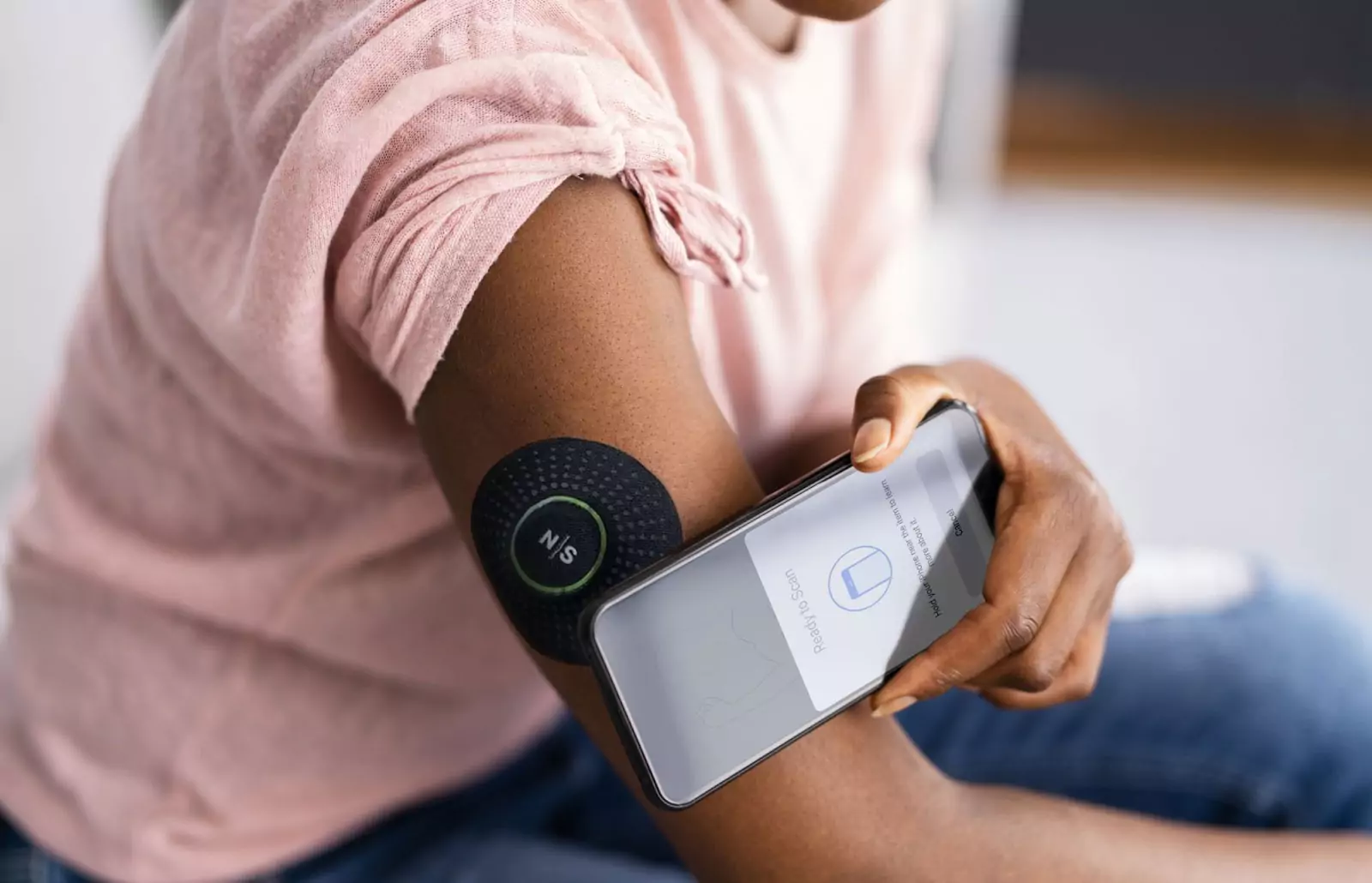How Heat and Humidity Affects Your Blood Sugar [+ 7 Tips For Beating The Heat]

Key Takeaways
It may be winter, but you’re not alone if you’re wondering why it feels so much warmer than usual this year. Pollution, deforestation, increased use of plastic... it’s all affecting the climate, and with climate change comes warmer temperatures. In fact, this is already one of the warmest years in history! Heatwaves are increasingly common, and humidity is on the rise. With all that factored in, have you ever wondered if all these high temperatures impact your health?
It’s no secret that heat and humidity cause dehydration and sweating. What you may not already know, however, is that this can also impact your blood glucose levels. People with chronic conditions like diabetes may be more sensitive to this, leading to potential issues managing the disease and their blood glucose levels in high heat and humidity.
Ways Heat Impacts Blood Sugar

Heat is often associated with low blood pressure due to intense sweating, leading to dehydration. Blood pressure is the force your blood applies to your arteries and veins, which depends on blood volume. So, for example, if your blood volume is higher than 140/90 mm Hg, your blood pressure is high, and if the volume is lower than 90/60mm Hg, your blood pressure is low.
Dehydration can decrease the amount of fluid circulating through your veins, leading to low blood pressure. However, when you stay hydrated, blood volume is diluted. It stays within normal parameters, and the blood glucose concentrations reduce. So, how does all this heat, humidity, and blood pressure influence blood glucose? Read on to find out.
Increases in Dehydration and Blood Glucose Level Rises
The most common signs of dehydration include a lack of energy, decreased urination, headaches, frequent thirst, and dry skin.
Remember, hormones are your body’s chemical messengers. They help keep your organs from experiencing various health issues as they travel through your bloodstream. To do this, they have to bind to receptors on particular cells. For example, insulin, a hormone that helps balance your blood glucose levels, will bind to receptors on cells and signal them to absorb the glucose and transform it into energy.
Dehydration can stimulate the release of vasopressin, an antidiuretic hormone that helps control fluid balance. When you’re dehydrated, this hormone prevents you from getting rid of the fluid and tries to preserve as much water as possible.
Alters Your Body’s Use of Insulin

Like insulin, vasopressin binds to the receptors on your cells, signaling them to start the glycogenolysis and gluconeogenesis processes. Glycogenolysis is when glycogen, the storage molecule of glucose in the muscles, is transformed into glucose, increasing blood sugar levels. For example, when you go for a run, you will use some of the glycogen stores in your muscles for the energy you need.
Gluconeogenesis is when other available substrates, such as proteins and fats, are turned into glucose. Both situations can stimulate the rise of blood sugar levels in your body.
Another receptor that can be stimulated when your body is dehydrated due to heat is the hypothalamus, a small area in your brain that controls body temperature. The hypothalamus signals the release of cortisol, the stress hormone that increases blood sugar levels and can develop a resistance to insulin over a long period.
Causes Blood Vessel Dilation and Increased Insulin Absorption
Glucose levels vary from person to person and from day to day, depending on various factors, including changes in insulin absorption. Studies show that during high temperatures, the absorption of insulin is accelerated. This is significant for diabetics since they may need to adjust insulin intake when the temperature changes to prevent altering insulin absorption.
Your body temperature is controlled by the thermoregulatory center. When the weather is too hot, sweat glands produce more sweat, which eventually evaporates. Blood vessels that lead to your skin dilating to allow more blood to flow through and get rid of some of this heat.
Increases Risk of Heat Exhaustion Especially in Those With Diabetes/Prediabetes

If your glucose levels are high and stay that way for a long time in your bloodstream, it can cause serious health issues. Dehydration is one of the factors that can cause blood sugar to rise, making your blood more concentrated. It’s essential for people who suffer from the disease to stay hydrated and avoid spending too much time in the heat, especially during warmer months.
Increases Blood Sugar When It Is Paired With a Sunburn
Extreme heat modifies enzymes, affecting all cell membranes, leading to a heat stroke. Usually, sweat evaporates and helps the body cool down, but with very high humidity, this becomes more challenging, resulting in high blood pressure and high glucose levels. In these instances, your body cannot sweat enough to cool itself down. Diabetics have lower sweating responses and greater insulin absorption, which may sometimes adversely affect glycemic control.
But how does sunburn affect blood sugar levels? Simply put, any form of stress can stimulate the hypothalamus in your endocrine system, influencing insulin absorption. Sunburn can sometimes be a form of this stress on your body. If your body responds to this stress by becoming resistant to insulin, it can lead to a rise in glucose levels.
What Role Does Humidity Play in Impacting Blood Sugar

While research is mixed on whether you sweat more in dry or humid climates, humidity does affect how you feel. Remember that how your body responds will depend on various factors like temperature, your level of physical activity, and so on. This may also happens during physical exercise; multiple heat loss mechanisms are activated to prevent the rise of body temperature. Since heat transfer depends on sweating, it’s adversely affected by high temperatures and humidity. So, people who suffer from type 1 or type 2 diabetes may feel as though they can’t cool down as effectively when it’s too hot outside. When it’s too humid outside, you also feel hotter, increasing your risk of dehydration. When you’re dehydrated, your sweat isn’t evaporated quickly enough to cool down, putting you at risk of things like heat exhaustion and heatstroke.
Are you wondering how to tell if your body is overheating or whether the head and humidity are affecting your blood sugar? Look out for instances of prolonged dizziness, nausea, headaches, cold skin even at high temperatures, excess sweating, and a drop in blood pressure.
Tips for Controlling Blood Sugar in The Heat

With all this talk about heat and humidity, you’re probably wondering how to ensure you’re not affected by it. Even in colder months, if you live in an area prone to humidity, it’s best to do as much as possible to safeguard your system from the effects. Here are a few quick tips and tricks to help you out:
- Try to drink a good amount of water daily. It can also help introduce liquid-based foods such as soups, smoothies, fruits, and vegetables into your diet.
- Keep track of your glucose levels and monitor any blood sugar changes when the temperature dips or rises.
- Schedule regular doctor’s visits to check and monitor your hormone levels.
- If you drink alcohol, moderate and consider cutting down on your alcohol intake. It can affect blood sugar levels and dehydrate you when it’s too hot outside.
- Reduce your intake of added sugars and processed foods.
- If there’s a heat advisory, or you have diabetes, stay inside! Also, try to spend as much time in the shade as possible if you’re prone to heat episodes.
- Exercise during cooler, less humid times of the day.
Regardless of the season, watch out for signs of dehydration or heat exhaustion, and track your glucose levels to prevent any heat and humidity issues that can affect your health.
Find the right Nutrisense programto turn insight into progress.
Go Beyond Glucose Data with Nutrisense
Your glucose can significantly impact how your body feels and functions. That’s why stable levels are an important factor in supporting overall wellbeing. But viewing glucose isn't enough. Nutrisense, you’ll be able to learn how to use your body's data to make informed lifestyle choices that support healthy living.
One-to-one coaching
Sign up to access insurance-covered video calls to work with a glucose expert: a personal registered dietitian or certified nutritionist who will help tailor your lifestyle and diet to your goals.
Monitor and measure what matters
With the Nutrisense CGM Program, you can monitor your glucose with health tech like glucose biosensors and continuous glucose monitor (CGM)s, and analyze the trends over time with the Nutrisense App. This will help you make the most informed choices about the foods you consume and their impact on your health.
Find your best fit
Ready to take the first step? Start with our quiz to find the right Nutrisense program to help you take control.

Amanda is a Nutrition Manager and Registered Dietitian, with a Masters in Dietetics from Stephen F. Austin State University. Originally from south GA, she got her undergrad degree from Texas Tech University. She worked at a hospital in Fort Worth, TX, for 4 years as a dietitian, counseling those living with HIV.




